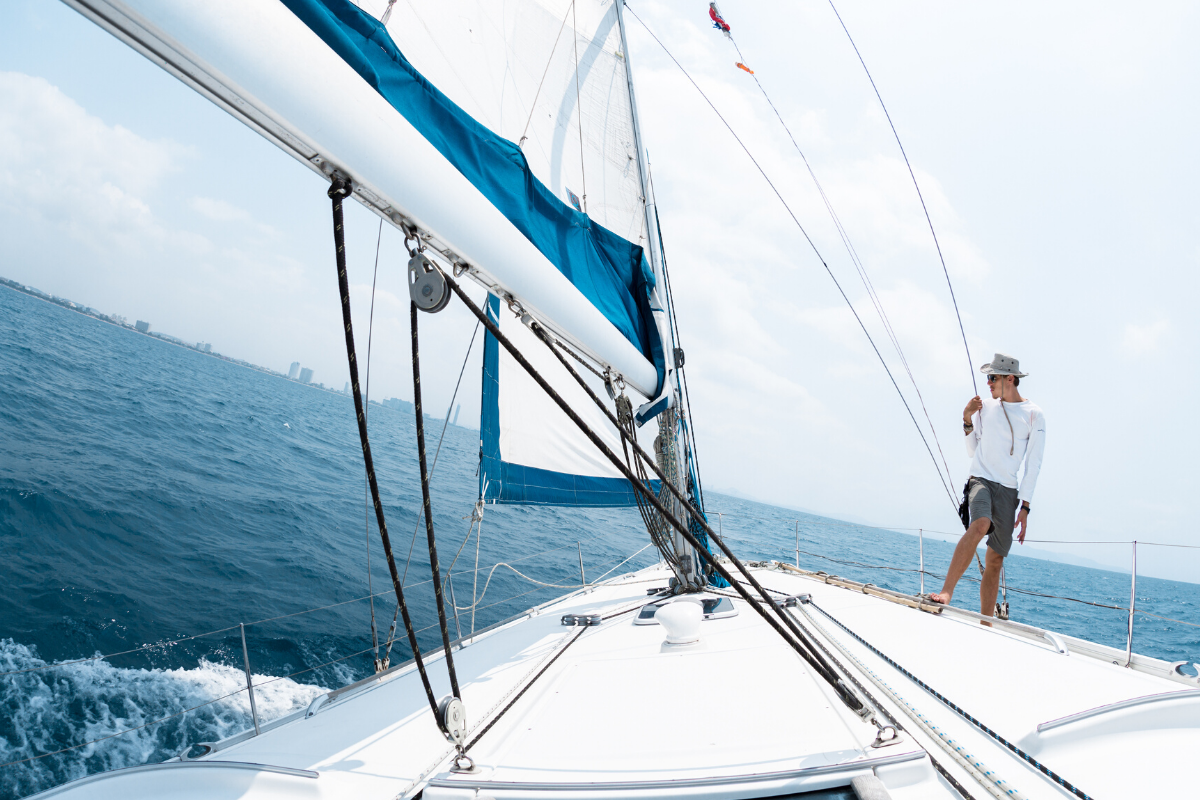Understanding Loneliness in the Yachting Industry
Loneliness is a pervasive issue in the yachting industry, affecting crew members in unique ways. The demanding nature of yacht work often leads to extended periods away from family, friends, and familiar environments. Crew members may find themselves in isolated situations, surrounded by the ocean but disconnected from their support networks. This paradox can create a sense of emotional disconnection, which is challenging in an industry that demands teamwork and collaboration. Furthermore, the high-pressure environment of yacht work can exacerbate feelings of loneliness, as crew members strive to meet the expectations of both their employers and guests. It’s crucial to understand that this sense of isolation is not a reflection of one’s abilities or worth; rather, it is a common experience in a demanding field. Recognizing the unique challenges that come with the yachting lifestyle is the first step in addressing loneliness effectively.
The Psychological Effects of Loneliness
The emotional toll of loneliness can be profound, particularly in a high-pressure environment like yachting. Crew members often experience anxiety, depression, and decreased overall well-being when faced with isolation. These emotional consequences can manifest in various ways, including difficulty concentrating, irritability, and a decline in performance. The psychological impact of loneliness may also affect interpersonal relationships, leading to conflicts or misunderstandings within the crew. Acknowledging the signs of loneliness is vital for crew members and their leaders alike, as it can facilitate early intervention and support. Developing emotional awareness can empower crew members to voice their feelings and seek help when needed. Additionally, fostering an environment where mental health is openly discussed can promote a healthier onboard culture, ultimately benefiting everyone involved.
Strategies for Managing Loneliness on Board
Implementing effective strategies can significantly alleviate feelings of loneliness among yacht crew members. One of the most important approaches is to foster supportive relationships within the crew. Encouraging open communication helps establish a foundation of trust, allowing crew members to share their experiences and emotions without fear of judgment. Team-building activities, whether formal or informal, can enhance camaraderie and create a sense of belonging. Utilizing technology also plays a crucial role in combating isolation; regular check-ins with family and friends can maintain those essential connections. Crew members should feel empowered to leverage social media and messaging apps to stay in touch with loved ones, even from afar. Creating a positive onboard culture is equally important, as it sets the tone for crew interactions. Initiating group activities and social events can facilitate bonding, while a buddy system can provide individualized support, ensuring no one feels alone during their time at sea.
Professional Support Options
Professional support is invaluable for yacht crew facing loneliness and its associated challenges. Engaging with yacht crew coaches or mental health professionals can provide crew members with the guidance they need to navigate their feelings. These experts offer insights and strategies tailored to the unique demands of the yachting lifestyle. Seeking professional help is not a sign of weakness; instead, it signifies strength and a commitment to personal growth. Numerous mental health resources cater specifically to yacht crew, including online support groups and forums where crew members can connect and share experiences. Such platforms allow individuals to find solace in knowing they are not alone in their struggles. Additionally, various apps and tools focused on mental well-being can aid crew members in developing coping mechanisms and stress management techniques, enhancing their emotional resilience during long stints at sea.
Cultivating a Healthy Work-Life Balance
Maintaining a healthy work-life balance is essential for yacht crew members seeking to manage loneliness effectively. Setting clear boundaries while on board can help individuals separate work from personal time, allowing for moments of rest and rejuvenation. Crew members should prioritize self-care practices that resonate with them, whether through mindfulness, exercise, or hobbies that provide joy. Incorporating mindfulness and stress-reduction techniques into daily routines can empower crew members to manage anxiety and enhance overall well-being. Engaging in personal interests during downtime is also crucial; whether it’s reading, journaling, or practicing a musical instrument, these activities can offer an escape and foster a sense of fulfillment. Moreover, planning for shore leave and downtime should not be overlooked. Making the most of time off by exploring new destinations or connecting with locals can enrich the crew’s overall experience and contribute positively to their mental health.
Final Thoughts
Investing in loneliness support for yacht crew is vital for fostering a more productive and cohesive onboard environment. Understanding the unique challenges faced by crew members and implementing practical strategies can significantly improve their experience at sea. Whether through supportive relationships, professional guidance, or individual self-care practices, the journey toward overcoming loneliness is a shared responsibility that enhances not just individual well-being but also the overall crew dynamic. By creating an environment where emotional health is prioritized, yacht crews can navigate the challenges of isolation and thrive, both personally and professionally.

